Department of Biomedical Engineering
John A. White, Jr. Engineering Hall
790 W. Dickson St. Suite 120
Fayetteville, AR 72701
Phone: 479-575-4667
Fax: 479-575-5619
Regenerative Medicine Research
Mechanobiology and Soft Materials Laboratory
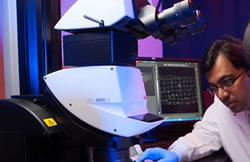 Primary Investigator: Kartik Balachandran, Ph.D.
Primary Investigator: Kartik Balachandran, Ph.D.
The MSML investigates the role of mechanical forces on physiology, function and disease. In particular, we are interested in understanding the interaction between structure and mechanics in regulating biological responses at different length-scales. We employ micro- and nano-fabrication tools to recreate the cellular and tissue environment in the laboratory. We also utilize live imaging, cell/tissue mechanics and tissue engineering techniques to understand several cardiovascular bioengineering problems including cardiac valve calcification, valve fusion and blood-brain barrier dysfunction. Knowledge gained from these studies will help guide the development of medical interventions and regenerative therapies. For more information, please visit the lab website.
Precision Genome Engineering Laboratory
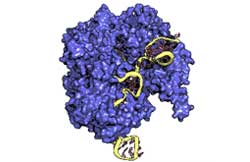 Primary Investigator: Christopher Nelson, Ph.D.
Primary Investigator: Christopher Nelson, Ph.D.
The goal of our research group is to develop next-generation gene therapies for debilitating and fatal genetic diseases. Specifically, we are interested in developing safe and effective strategies to deliver CRISPR/Cas9 to target cells and tissues. We are also interested in applying genome engineering to control aberrant gene expression. For more information, please contact nelsonc@uark.edu or visit our website.
Quantitative Tissue Diagnostics Laboratory
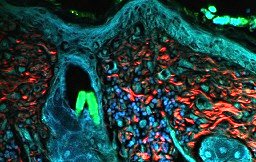 Primary Investigator: Kyle P. Quinn, Ph.D.
Primary Investigator: Kyle P. Quinn, Ph.D.
The Quantitative Tissue Diagnostics Lab is a multi-disciplinary research group focused on developing quantitative biomarkers of tissue structure and function to diagnose disease, assess trauma, and guide therapies. Using imaging modalities such as multiphoton microscopy and fluorescence lifetime imaging, we can non-destructively obtain 3D images from live tissue without adding any stains or dyes. From these images, our group develops and utilizes quantitative analysis techniques to measure changes in cell metabolism and structural organization. Our primary research efforts are focused on exploring applications in the field of wound healing, with the end goal of developing non-invasive real-time quantitative readouts to detect impaired healing and guide care. For more information, please visit us at quinnlab.org.
Stem Cell Bioengineering Laboratory
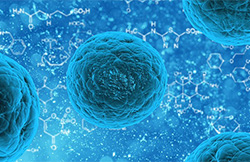 Primary Investigator: Raj Rao, Ph.D.
Primary Investigator: Raj Rao, Ph.D.
The overall goal of the Stem Cell Bioengineering Laboratory is to combine the principles of stem cell biology, biomaterial science, molecular and cell biology and tissue engineering to contribute to better understanding of stem cell properties, development of novel stem cell bioprocessing strategies and enabling technologies towards applications in regenerative medicine. For more information, please visit the lab website.
Therapeutic Testbed Engineering Laboratory
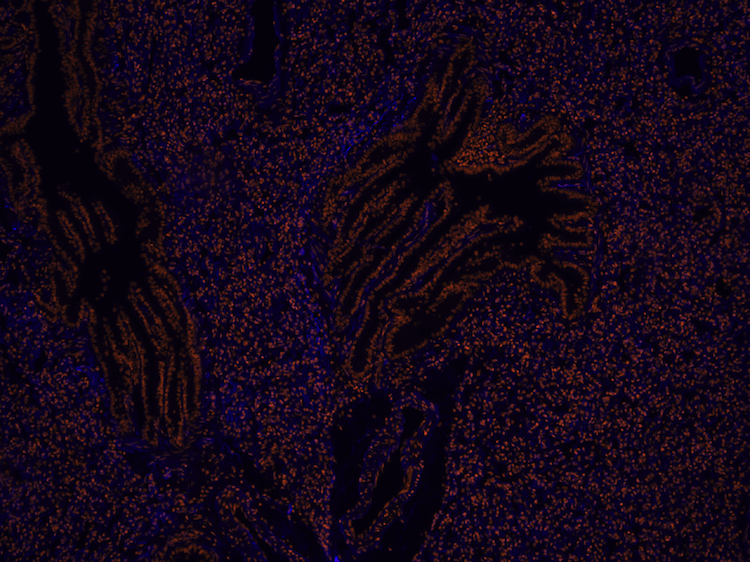 Primary Investigator: Young Hye Song, Ph.D.
Primary Investigator: Young Hye Song, Ph.D.
The overall goal of our research program is to develop pro-regenerative scaffolds and in vitro disease models using naturally derived biomaterials and innate cellular capabilities. In disease angle, we are interested in 1) understanding the role of cancer-nerve crosstalk in pro-tumorigenic transformation of the tumor microenvironment and eventually metastasis and 2) determining the specific roles of tumor-derived microvesicles in potentiating these changes. In the regenerative medicine angle, we are primarily interested in harnessing stem cell-derived physicochemical cues in creating pro-regenerative scaffolds that replicate tissue-specific biochemical and topographical features. By performing thorough investigations both in vitro and in vivo, we can utilize these models to gain a better understanding of healthy and diseased/traumatic states, and ultimately develop novel therapeutics to improve patient outcomes. For more information, please visit our lab website.
Regenerative Biomaterials Laboratory
 Primary Investigator: Jeff Wolchok, Ph.D.
Primary Investigator: Jeff Wolchok, Ph.D.
The Regenerative Biomaterials Lab uses cells to build biomaterials that mimic the properties of human tissue. We are currently exploring the use of these biomaterials for the treatment of damaged muscle. Our group also investigates the effects of traumatic brain injury at the cellular level using a novel benchtop "crash tester".